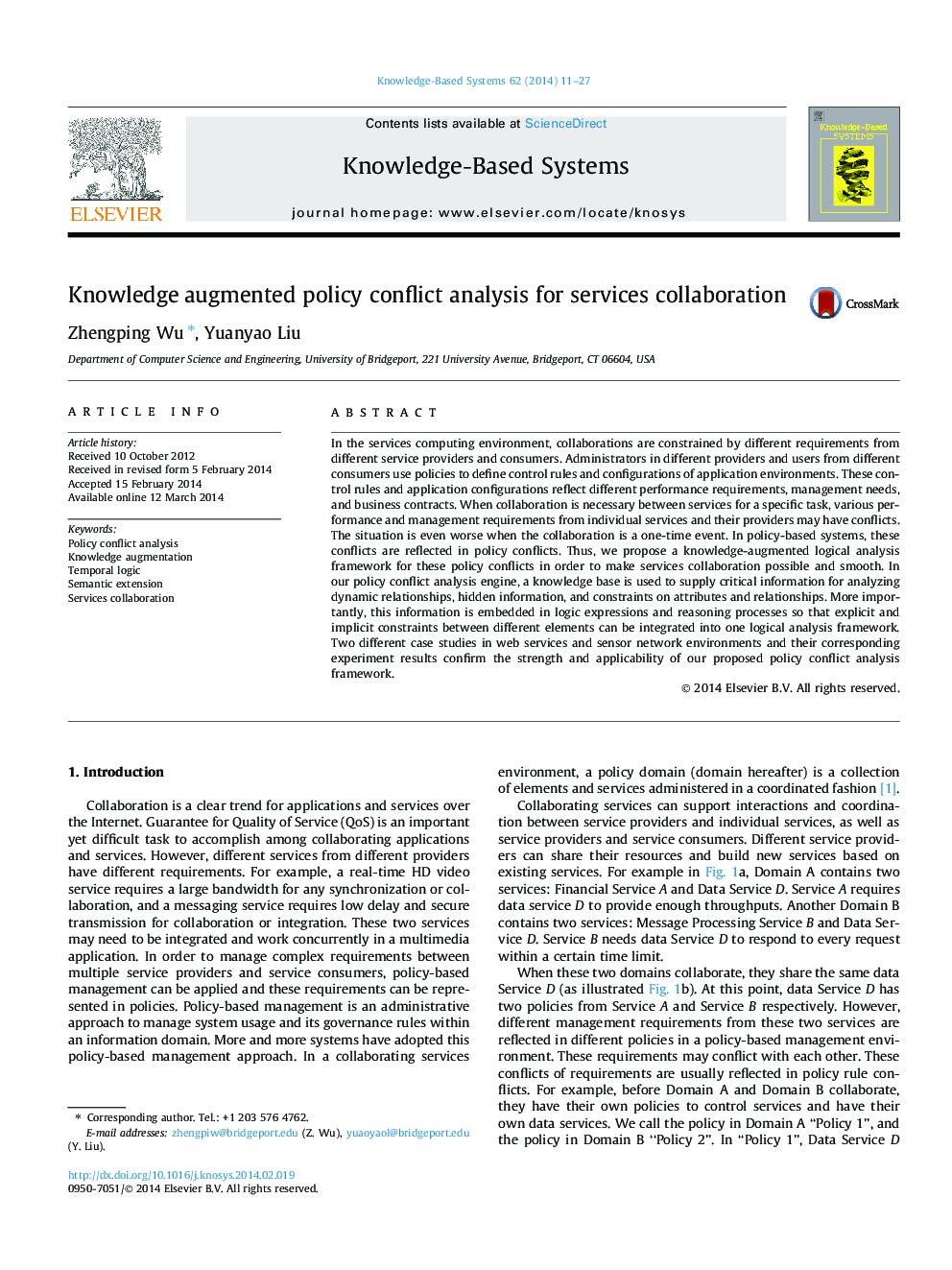| Article ID | Journal | Published Year | Pages | File Type |
|---|---|---|---|---|
| 402810 | Knowledge-Based Systems | 2014 | 17 Pages |
In the services computing environment, collaborations are constrained by different requirements from different service providers and consumers. Administrators in different providers and users from different consumers use policies to define control rules and configurations of application environments. These control rules and application configurations reflect different performance requirements, management needs, and business contracts. When collaboration is necessary between services for a specific task, various performance and management requirements from individual services and their providers may have conflicts. The situation is even worse when the collaboration is a one-time event. In policy-based systems, these conflicts are reflected in policy conflicts. Thus, we propose a knowledge-augmented logical analysis framework for these policy conflicts in order to make services collaboration possible and smooth. In our policy conflict analysis engine, a knowledge base is used to supply critical information for analyzing dynamic relationships, hidden information, and constraints on attributes and relationships. More importantly, this information is embedded in logic expressions and reasoning processes so that explicit and implicit constraints between different elements can be integrated into one logical analysis framework. Two different case studies in web services and sensor network environments and their corresponding experiment results confirm the strength and applicability of our proposed policy conflict analysis framework.
